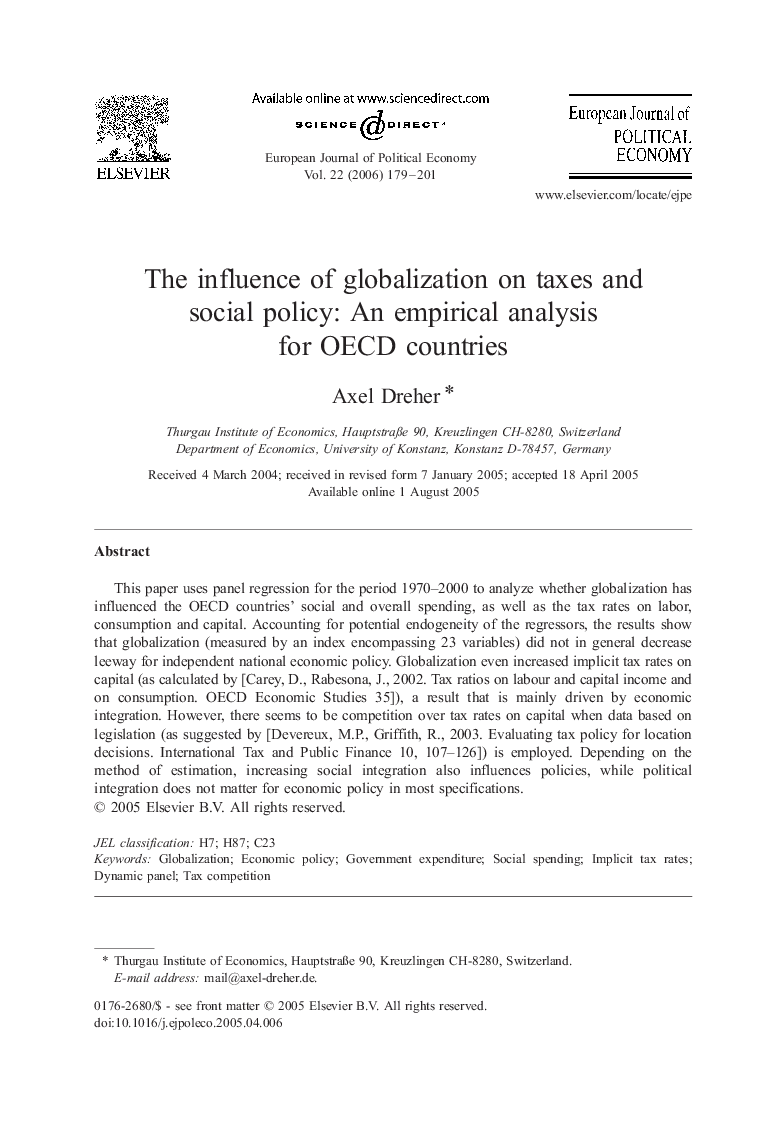| Article ID | Journal | Published Year | Pages | File Type |
|---|---|---|---|---|
| 5068520 | European Journal of Political Economy | 2006 | 23 Pages |
Abstract
This paper uses panel regression for the period 1970-2000 to analyze whether globalization has influenced the OECD countries' social and overall spending, as well as the tax rates on labor, consumption and capital. Accounting for potential endogeneity of the regressors, the results show that globalization (measured by an index encompassing 23 variables) did not in general decrease leeway for independent national economic policy. Globalization even increased implicit tax rates on capital (as calculated by [Carey, D., Rabesona, J., 2002. Tax ratios on labour and capital income and on consumption. OECD Economic Studies 35]), a result that is mainly driven by economic integration. However, there seems to be competition over tax rates on capital when data based on legislation (as suggested by [Devereux, M.P., Griffith, R., 2003. Evaluating tax policy for location decisions. International Tax and Public Finance 10, 107-126]) is employed. Depending on the method of estimation, increasing social integration also influences policies, while political integration does not matter for economic policy in most specifications.
Keywords
Related Topics
Social Sciences and Humanities
Economics, Econometrics and Finance
Economics and Econometrics
Authors
Axel Dreher,
